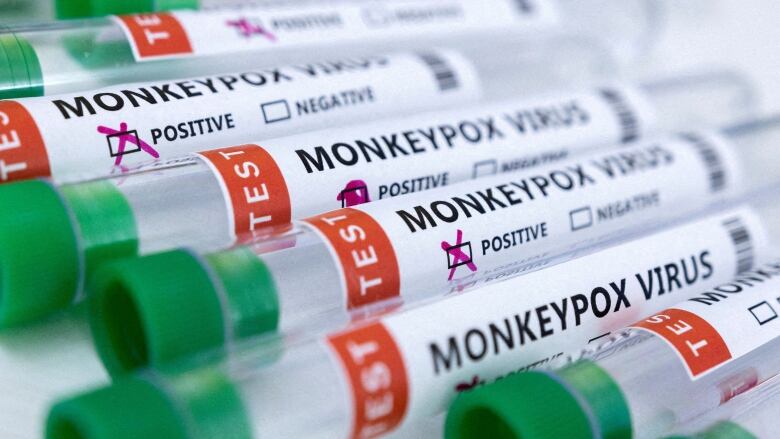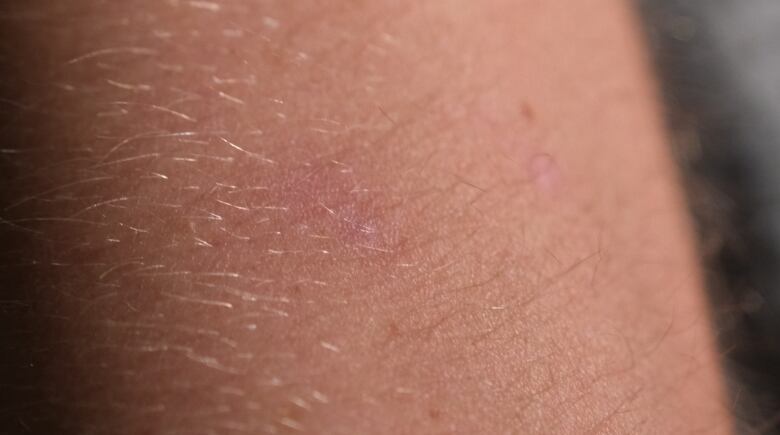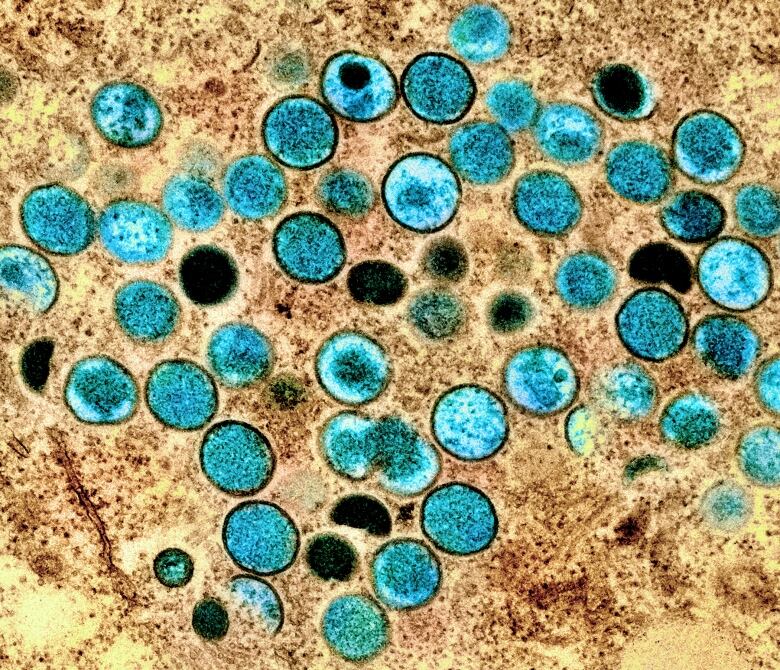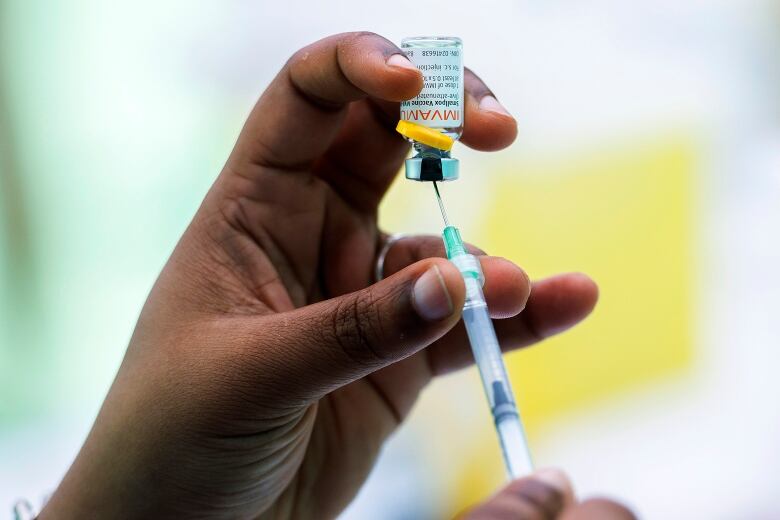LGBTQ advocacy group wants more monkeypox info, pop-up vaccine clinics
Call comes after 2 probable cases say they were given incorrect information, delaying treatment

The executive director of Quadrangle, an advocacy group for the LGBTQ community, says it's troubling that gay contacts of two probablemonkeypox cases in Newfoundland and Labrador were treated differently than straight contacts.
In an exclusive interview with CBC News, two men said 811 gave them incorrect information, which resulted in delays in testing and protection for close contacts.
The provincial Public Health division announced the first probable case of the viral disease on July 28.
Both men, who CBC has agreed not to name, say they believe they were infected with monkeypox after attending different Pride celebrations outside the province at the end of June.
The man who first developed symptoms and a rash said he self-isolated and was told to see a family doctor, whoreferred him to a dermatologist. The specialist alerted Public Health and asked the man to go to an emergency room for testing.

The men said their contacts who identify as gay were asked about their sexual history and told not to have sex, while straight contacts were not. The men said a gay couple were asked to wait outside a health clinic, while straight contacts were allowed inside a different clinic.
They also said gay and straight contacts were given differing isolation timelines, which Chris Murphy, Quadrangle's executive director, said is "troubling."
Murphy says it shows provincial health-care workers weren't informedor prepared to deal with early signs of the virus.
"That's the part that really does concern me, that we weren't ahead of that," he said. "I hope that's coming from a place of just uneducation and not direct homophobia."

In light of the men's experiences, Murphy is calling for more regular updates about monkeypox from the provincial government "rather than one press release and leaving it."
"We know that if you're trying to get information out there, repeating that information over and over again is important."
He would also like to see pop-up vaccine clinics with Imvamune a vaccine used to prevent smallpox, which provides some protection from monkeypox for the LGBTQ community in this province
"I personally would love to see Quadrangle as part of those vaccine clinics and continuing information being shared."
Following the men's revelations, Murphy said Quadrangle and other groups met virtually with Public Health officialsto review graphs and information about monkeypox through an LGBTQ lens. He said they also asked Public Health to ensure the right messaging is being used and that health-care access is equitable.

He said the men's experience with the heath-care system is disheartening and makes people feel nervous about the type of treatment they could receive if they contractthe disease.
Such situations build distrust and create stigma that is reminiscent of the HIV and AIDS epidemic, he said.
"Could that happen again? Can that happen again? How's that going to impact the community now?" he said. "We know sometimes history can repeat itself."
Monkeypoxsymptoms, which can develop five to 21 days after exposure, include fever, chills, pain, fatigue and a rash that forms raised red bumps that turn into blisters or pustules, which scab over. People are infectious until the rash scabs over.
The virus spreads through close physical contact, or through bedsheets and linens that have been in contact with lesions or sores. It can also spread through respiratory droplets.

Anyone can contract monkeypox, but so far cases have been reported primarily by men who have sex with men.
"Viruses don't pick and choose a certain population or demographic, they see opportunities," Murphy said.
The Public Health Agency of Canada has reported 1059 confirmed cases of monkeypox as of Friday. Just over 31,000 cases have been reported globally since January.
In a statement Tuesday the provincial Health Departmentsaid there have been only two probablecases of monkeypoxreported in Newfoundland and Labrador.
A spokesperson said Public Health has issued 16 doses of Imvamune, a smallpox vaccine, andthe Public Health Agency of Canada has delivered 140doses of itto the province.
The department did not commit to Murphy's call for a pop-up vaccination clinic, and said it is "exploring the most appropriate vaccine strategy taking into consideration the epidemiology and supply."
The department has created a websitewith information about the disease.
With files from The St. John's Morning Show












_(720p).jpg)


 OFFICIAL HD MUSIC VIDEO.jpg)
.jpg)



























































































